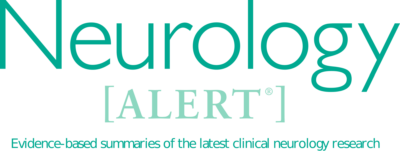
Neurology Alert – June 1, 2017
June 1, 2017
View Issues
-
Autoimmune Antibodies in Patients with Epilepsy of Unknown Etiology
In this prospective study of patients with epilepsy of unknown origin (including new-onset and established epilepsy), more than 20% of patients were found to have neurological autoantibodies strongly suggesting autoimmune origin of their epilepsy.
-
Serotonin Transporter Increases in Premotor Parkinson’s Disease
In a small cross-sectional study, increased serotonin transporter was detected using 11C-DASB PET in striatum, hypothalamus, and brainstem in LRRK2 carriers who did not have clinical Parkinson’s disease. This contrasts with later decreases previously described and implies a likely early compensatory mechanism.
-
Vascular Risk Factors and Their Role in the Development of Alzheimer’s Disease
This study has found an association between mid-life, but not late-life, vascular risk factors and brain amyloid deposition as imaged on amyloid-labeled PET.
-
Spinal Manipulative Therapy for Acute Low Back Pain
Spinal manipulative therapy for acute low back pain may provide some benefit, but carries a significant risk of treatment-associated pain.
-
Hematopoietic Stem Cell Transplantation for Adult Cerebral X-linked ALD
Based on review of data from 14 patients with adult cerebral X-linked adrenoleukodystrophy who were treated with hematopoietic stem cell transplantation, the authors suggested that this might be an intervention that potentially could have long-term benefits and recommended further studies to evaluate this therapy.
-
Excellent Outcome 2 Years After Endovascular Mechanical Thrombectomy
The beneficial effects of endovascular treatments on functional outcome at two years in patients with acute ischemic stroke was similar to those reported at 90 days in the original trial.
-
Consumption of Artificially Sweetened Beverages Increases Stroke Risk
Higher recent and higher cumulative intake of artificially sweetened soft drinks was associated with an increased risk of ischemic stroke and Alzheimer’s disease. However, sugar-sweetened beverage consumption was not associated with stroke or dementia.
